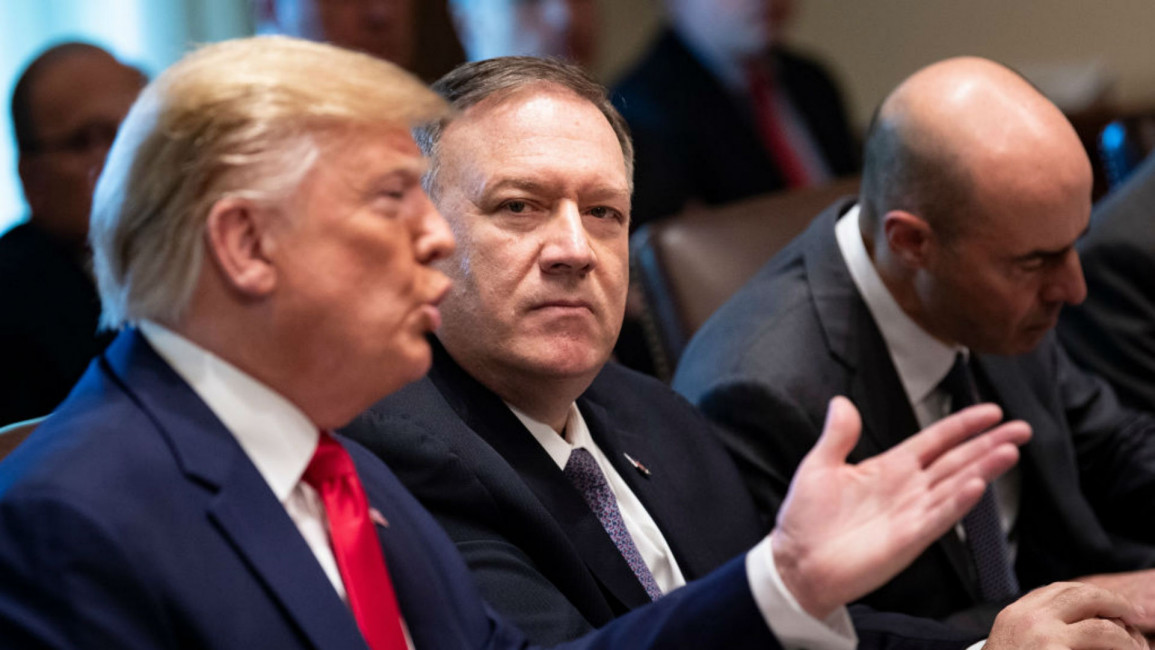
US attack on Iraqi militia further entrenches US military in Middle East
In addition to the destruction of five weapons and munitions depots, and command and control locations, these attacks killed 25 Iraqis, including at least four militia commanders and the wounding of at least 55 others.
The Trump administration argues that these attacks were not only an appropriate response to the attack by the group, which the US contends is an Iranian proxy, on an Iraqi military base near Kirkuk that killed a US contractor and wounded four American troops and two Iraqis. Moreover, the US says, it will degrade the group's ability to conduct future attacks against coalition forces in the region.
Even if one accepts the administration's rationale for the American response, the incident should raise a number of concerns. First, why does the US still have approximately 5,000 troops plus an unknown number of private contractors in Iraq nearly 17 years after our invasion?
It is important to remember that because of the demands of the Iraqi government - of former Prime Minister Nouri al-Malaki, whom the US installed - the Bush administration agreed in 2008 to withdraw all American troops from the country by the end of 2011, an arrangement the Obama administration implemented.
US forces returned in 2014, at the request of the Iraqi government, to combat IS, which was decimating the US-trained Iraqi military and had taken control of one-third of the country. But, after the defeat of IS the rationale has changed. According to the Trump administration, the US remains there to combat influence on the Iraqi military by Iranian militias, many of whom we cooperated with to defeat IS.
 |
The US should reflect on the unintended consequences of its mindless, needless, senseless invasion and occupation of Iraq in 2003 |  |
Second, if our attack in Iraq was a response to an assault on that country by a foreign power, why was the US attack on December 29, 2019, unanimously and publicly condemned by all the Iraqi leaders, including the president, the prime minister, the foreign minister, the Fatih Alliance - the second largest group in the Iraqi Parliament - and the top Shia cleric, Grand Ayatollah Ali al Sistani?
Iraqi President Barham Salih actually went so far as to call it an aggressive action and a violation of Iraqi sovereignty.
Twitter Post
|
When Secretary of State Mike Pompeo informed Iraqi Prime Minister Adil Abdul-Mahdi of the attack ahead of time, the prime minister asked him to call it off, and then publicly condemned it, calling it an unspeakable, vicious assault that will have dangerous consequences. How can we claim to be in Iraq to protect their democracy when we are obviously violating their sovereignty?
Third, what comes next? The Pentagon claims that its precision defensive strikes will degrade the militia group's ability to conduct future attacks against coalition forces, while Pompeo calls it a decisive response to Iran.
What happens if the strike does not degrade the militia's capabilities? Will the US be prepared to attack Iran, which it claims is responsible for the attacks on US personnel? And do we want a war with Iran while the Pentagon is preparing to shift our forces from the Middle East to combat what it sees as the primary threat to our security, our strategic competitors, Russia and China?
Moreover, is any of this even legal?
Is our continued presence in Iraq still justified by the Authorization of Military Force (AUMF) passed after 9/11, or by the 2002 Congressional vote to support the invasion of Iraq? Is it time to ask Congress to vote on our continued deployment in Iraq?
Fourth, how will the US attacks impact events in Iraq where there is already turmoil? Mass demonstrations there have resulted in the deaths of approximately 500 anti-government protestors, who, among other things, were condemning militias like Kataib Hezbollah and their Iranian backers.
Now, they've turned their ire on the United States because of the attack, with anti-American slogans replacing anti-Iranian ones and with calls for an end to the American occupation, including an attack on the American embassy.
As the US considers what its next steps should be, it should reflect on the unintended consequences of its mindless, needless, senseless invasion and occupation of Iraq in 2003 and its current maximum pressure campaign against Iran.
 |
Is any of this even legal? |  |
Not only did the invasion lead to the establishment of IS, but it also increased the influence of Iran in the county and in the region, a situation we are dealing with today.
And, our maximum pressure campaign against Iran has led to the increasing influence of China and Russia in the region, as demonstrated by their recent naval exercises with Iran. Finally, these attacks have strengthened Iran's influence in the region by undermining our relations with Iraq.
Lawrence J. Korb is a senior fellow at the Center for American Progress. He is also an adjunct professor at Georgetown University, and former US Assistant Secretary of Defense (1981-85).
Follow him on Twitter: @LarryKorb
This article originally appeared on Responsible Statecraft.
Opinions expressed in this article remain those of the author and do not necessarily represent those of The New Arab, its editorial board or staff.



